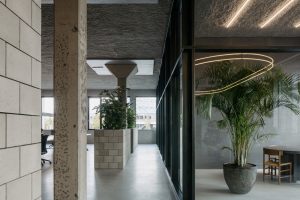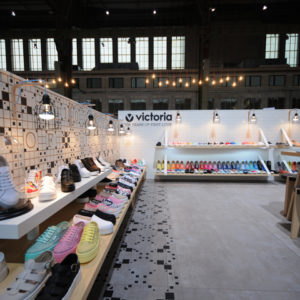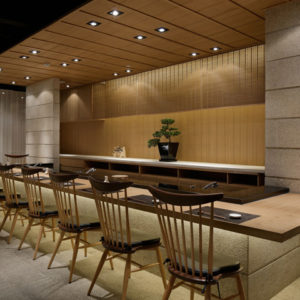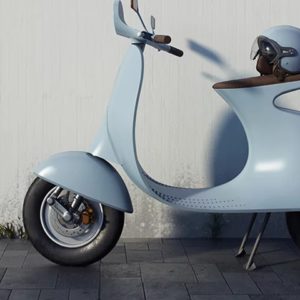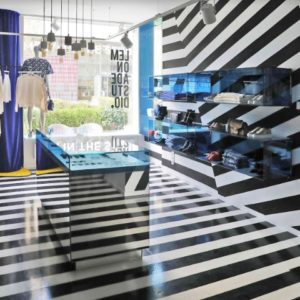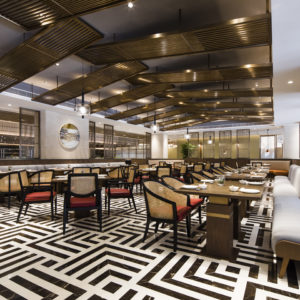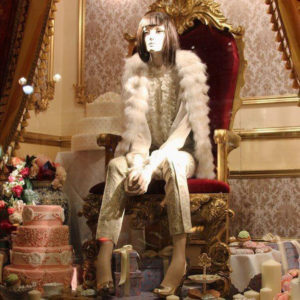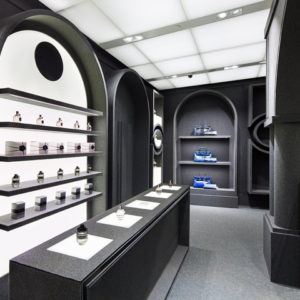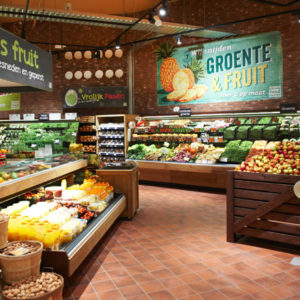
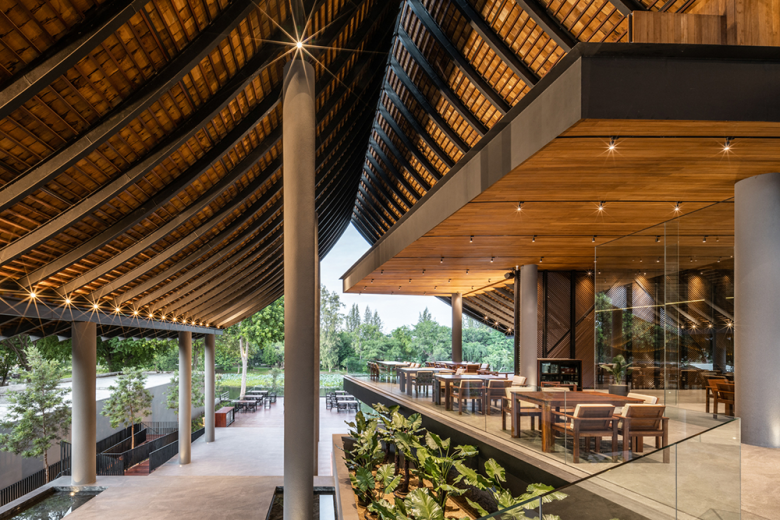
Keereetara is a brand-new restaurant intended as a replacement for its original branch located nearby. The restaurant itself is one of the most popular and successful Thai restaurants in Kanchanaburi, so the owner decided to maintain a sense of the traditional Thai style reflected in the building that links to the Thai dishes served. Due to its small property size, especially when compared to the required functions of a major restaurant branch, the restaurant needs to be able to support large-scale events such as seminars, and weddings.
This resulted in having a large commissary kitchen of over a thousand square meters in order to fully support any future expansions and the nearby branches. Not only that Keereetara has to house a large service facility but as the site is adjacent to the Kwai river – it is also crucial to take advantage of this view for both the indoor and outdoor dining zones.
The design process started from the limitation; of finding the most functional location for most of the services and the commissary kitchen – which takes up most of the available space on the first floor. This in combination with a high ceiling results in a large building mass that fills up the space and obstructs the view of the river. The architect, therefore, places other usable functions on the second level the kitchen and services behind a large staircase that leads all visitors to the entry foyer on the second floor.
The foyer further diverts to the banquet hall on the third level but also continuously leads the visitors to the dining terrace which has been designed with alternating levels that gradually gets closer to the river bank, resulting in an area that can be separated into several dining zones. On the third level, a banquet hall was placed to hold functions such as seminars or weddings. The hall is surrounded by a veranda and an additional dining zone with a higher view of the river.
Another important point was the infusion of “Thainess” into a large-scale building which was a challenge. Traditionally, large-scale Thai buildings that encompass wide spans are either temples or palaces. Thai houses are traditionally small-scale and are often collectively placed in clusters. The architect, therefore, adopted the “feelings” and “senses” of Thai architecture into the usable spaces to highlight this infused Thai atmosphere for the users rather than using direct proportions or decorative elements from Thai architecture.
This interpretation resulted in a large curved gable roof that is also functional to the building use; the central ridge is offset and centered along the main entrance, slightly tilted to allow for natural light penetration, creating an axis in a ray of light towards the river. The long side of the gable roof gradually sloped down to reach the floor which seemingly reduces its gigantic roof scale. Further, the sloping roof on the riverside also operates as stairs for the users to access the rooftop bar and the roof deck.
Architects: IDIN Architects
Interior Designers: Promote KamolpanOp
Photographs: DOF Sky|Ground
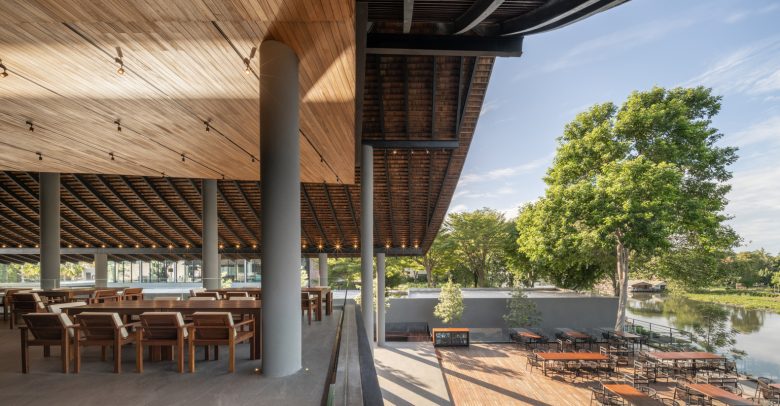
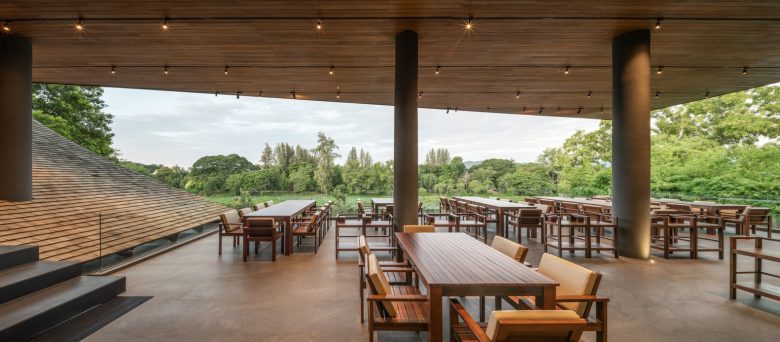

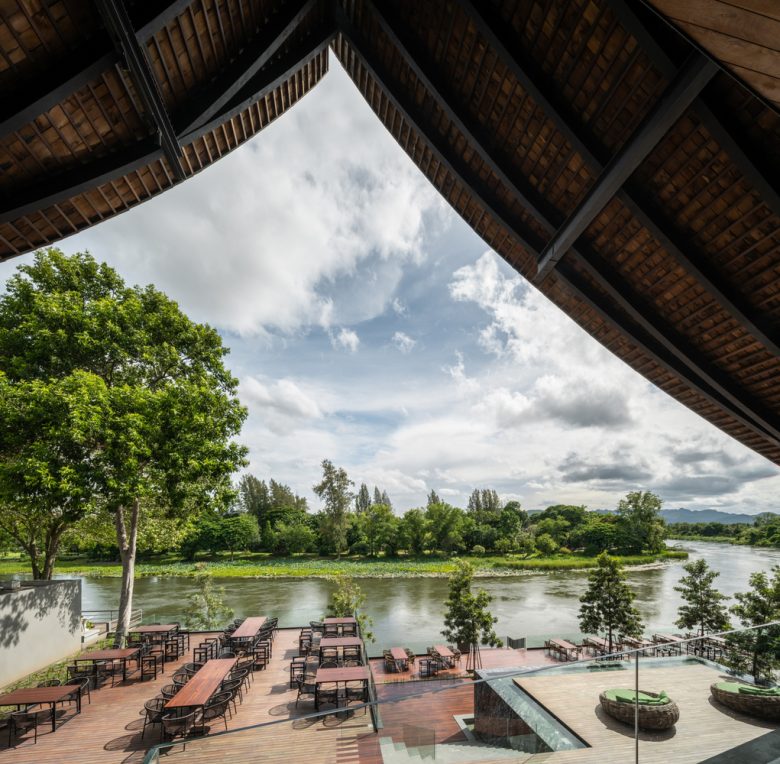
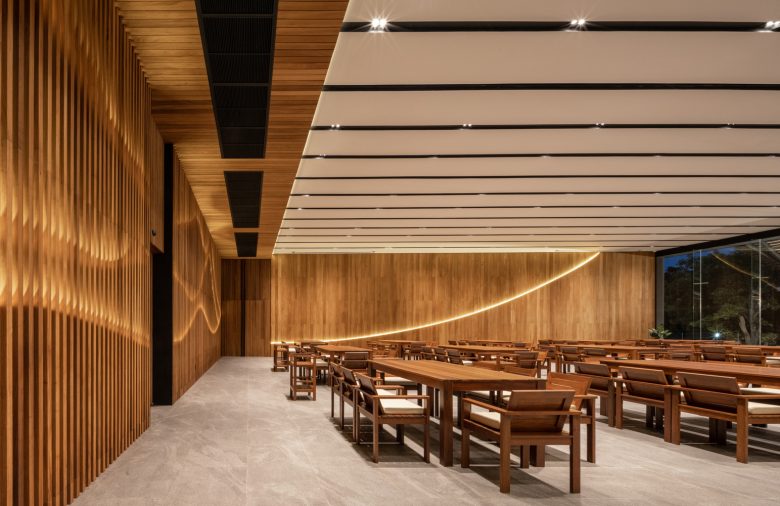
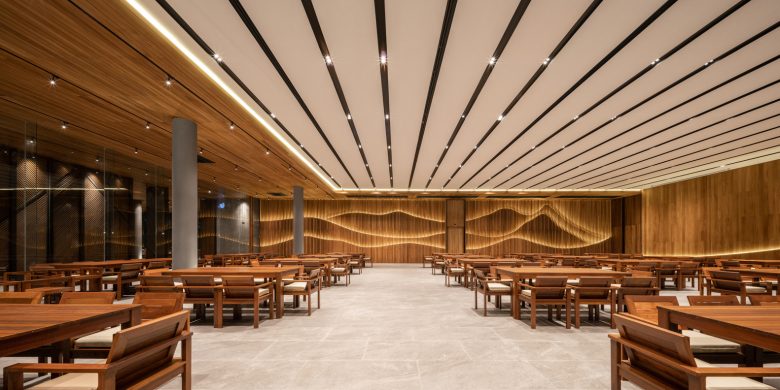
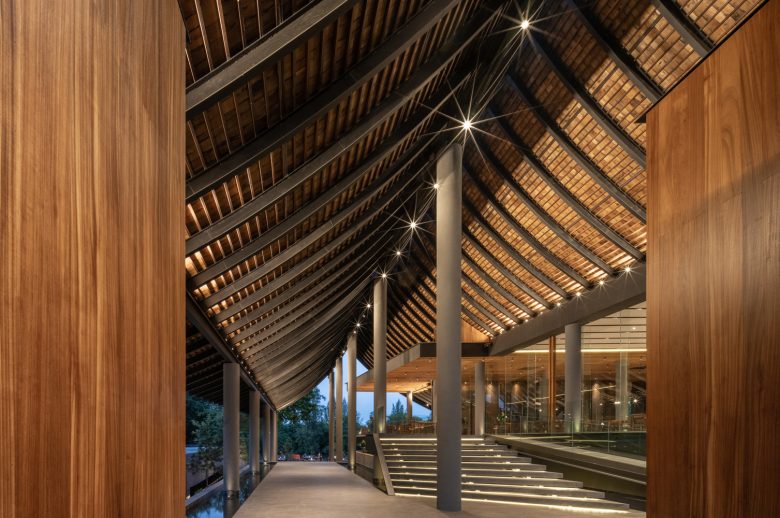
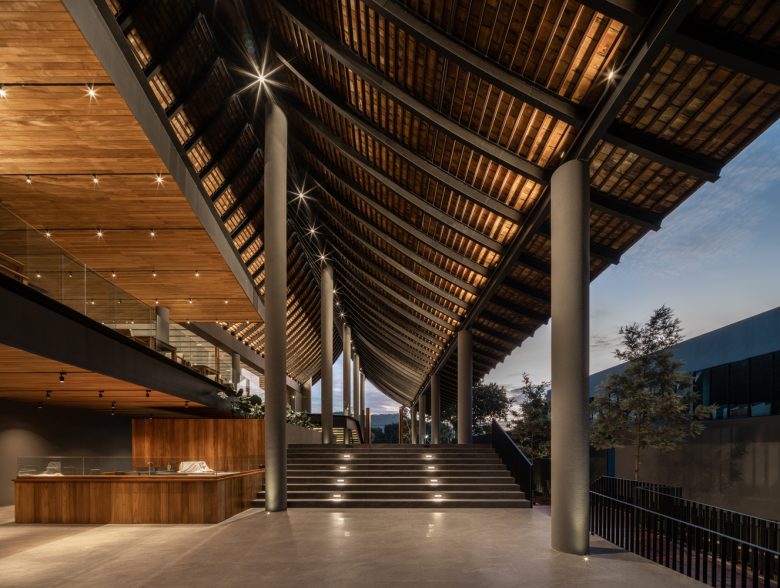
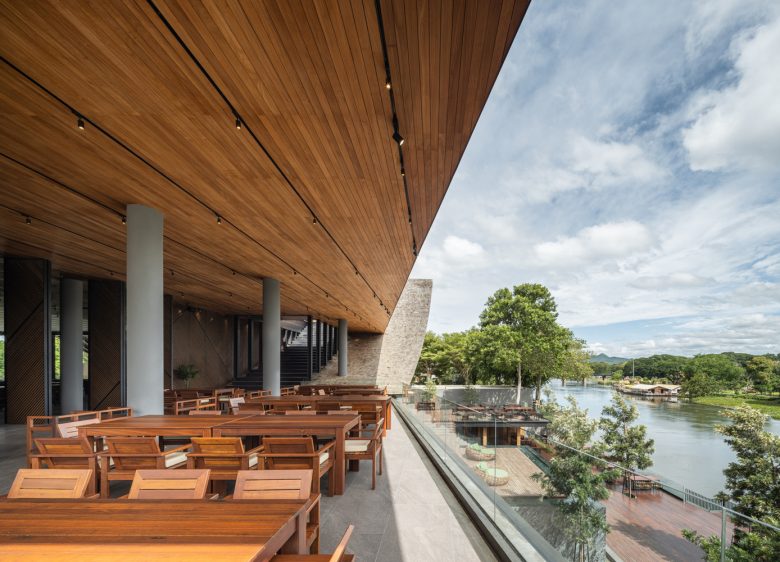
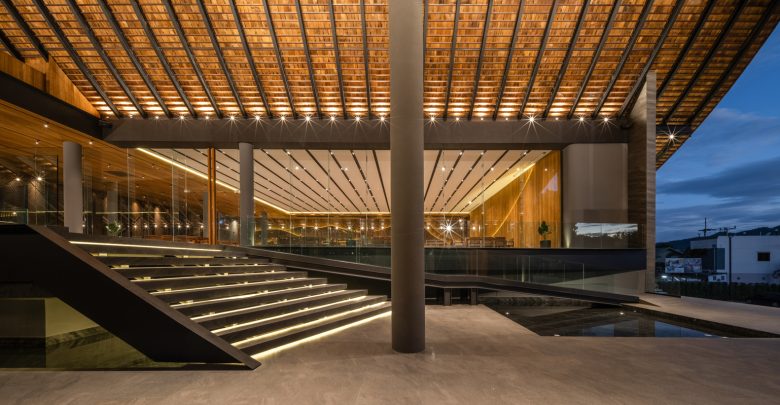
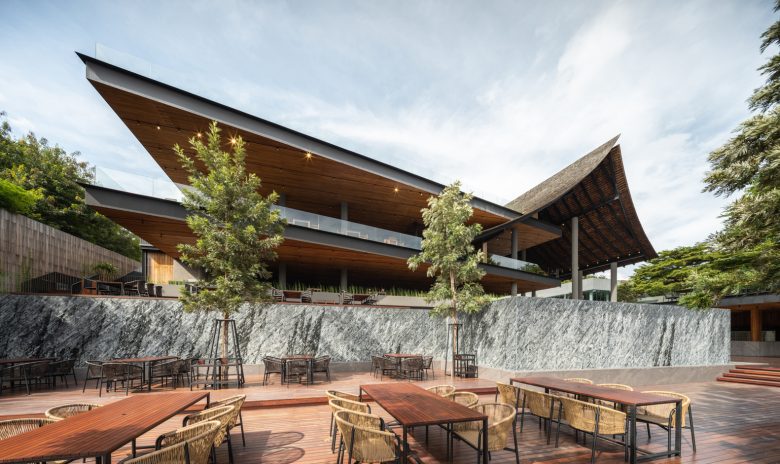
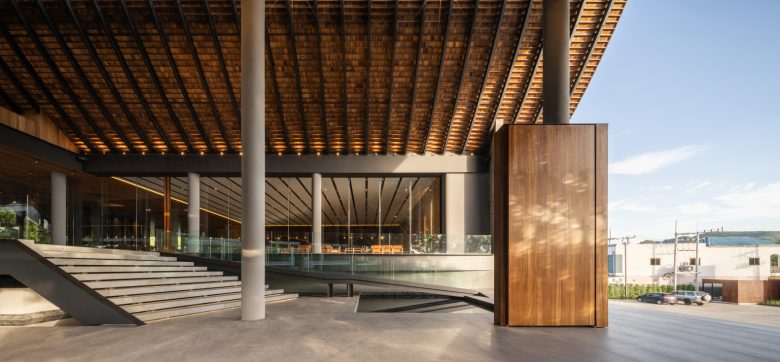


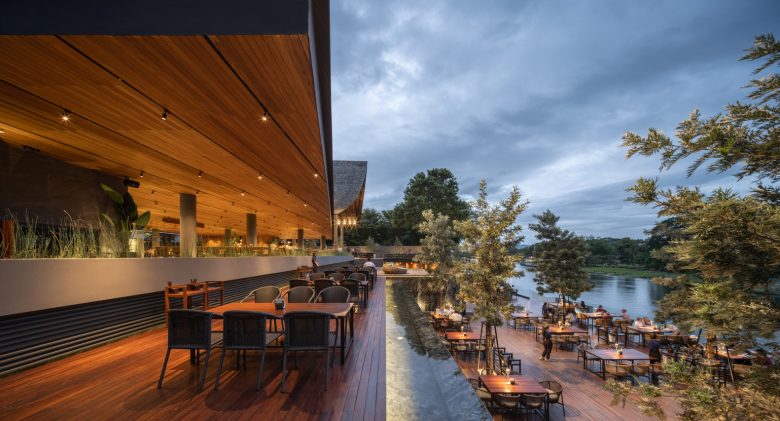

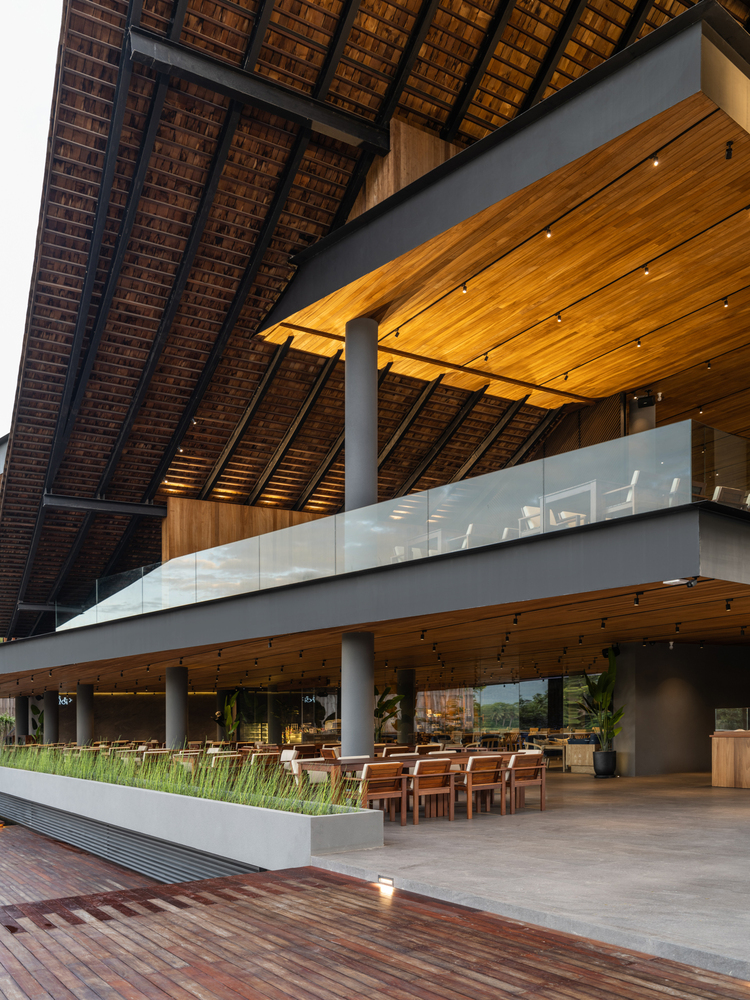

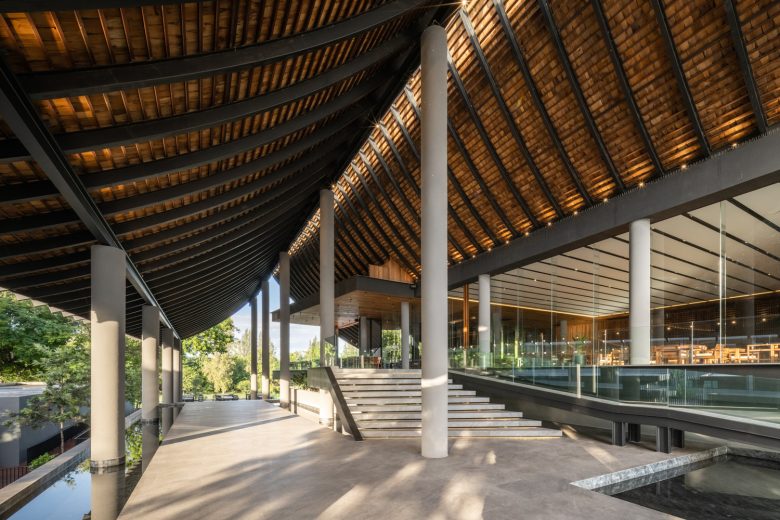
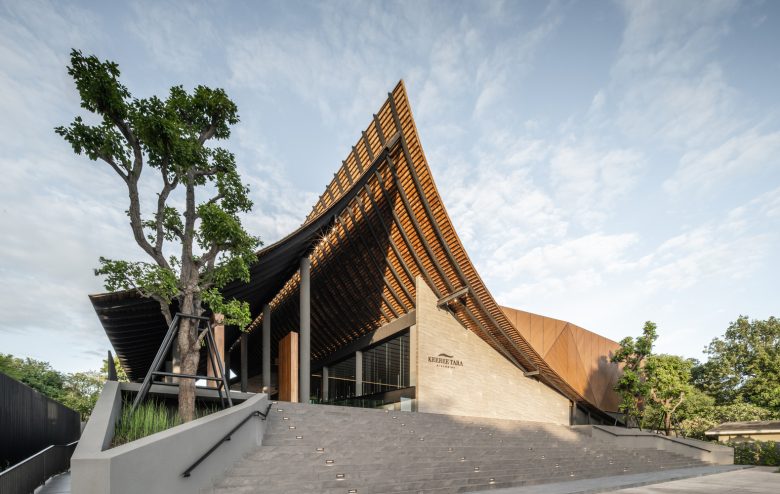
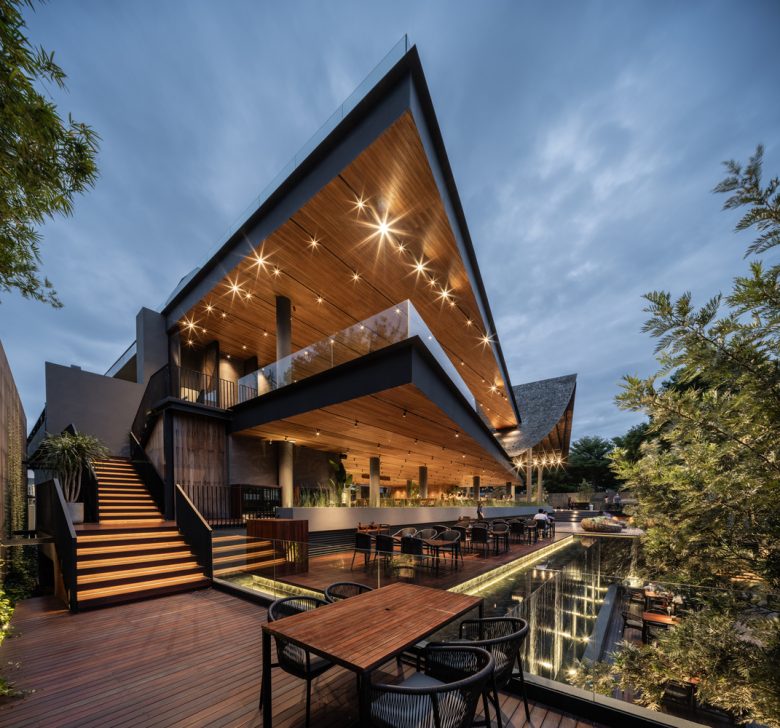
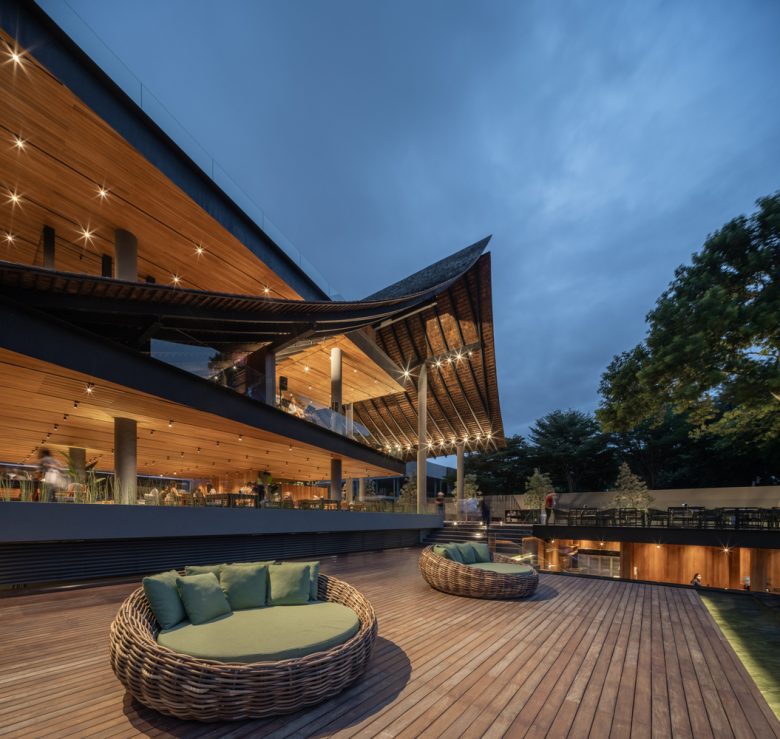
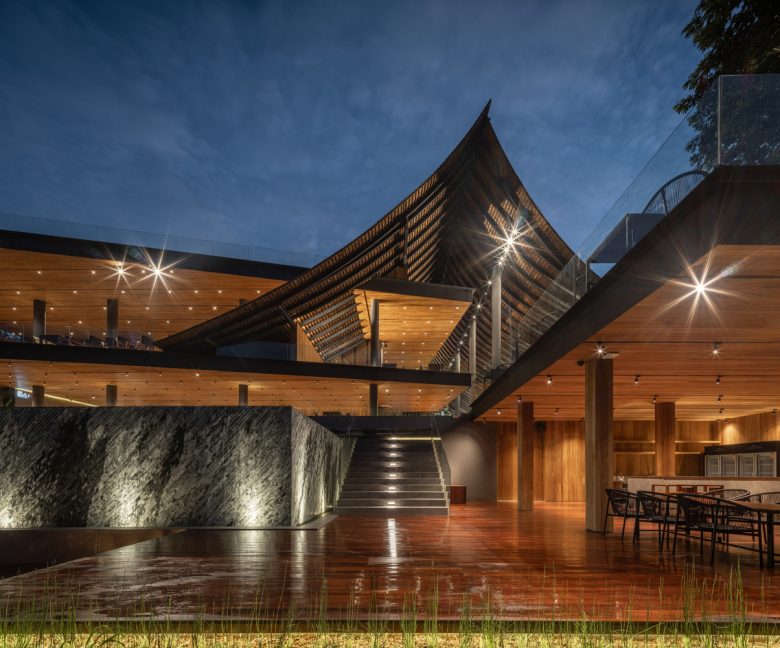

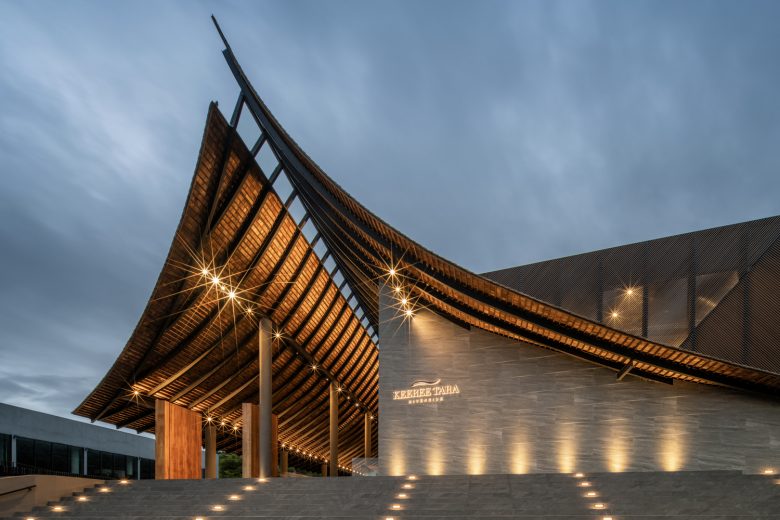

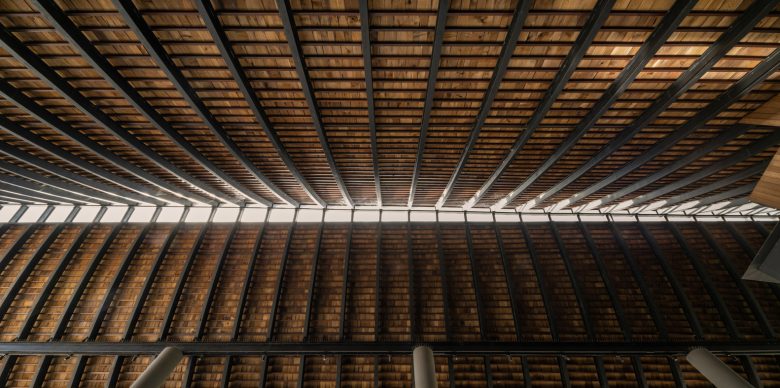
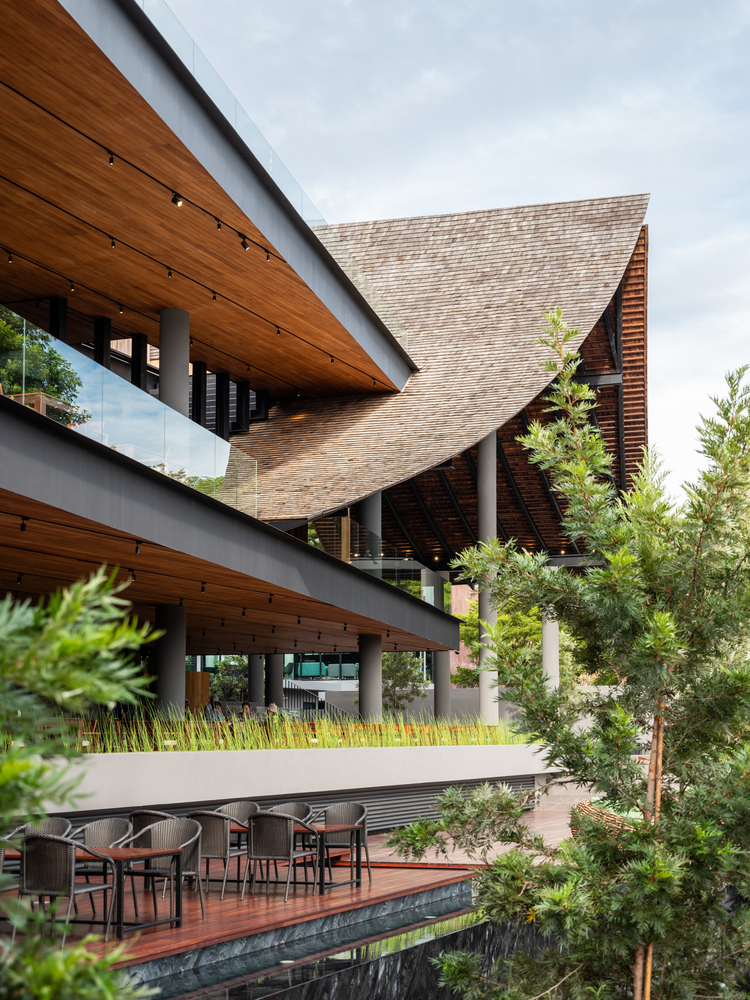
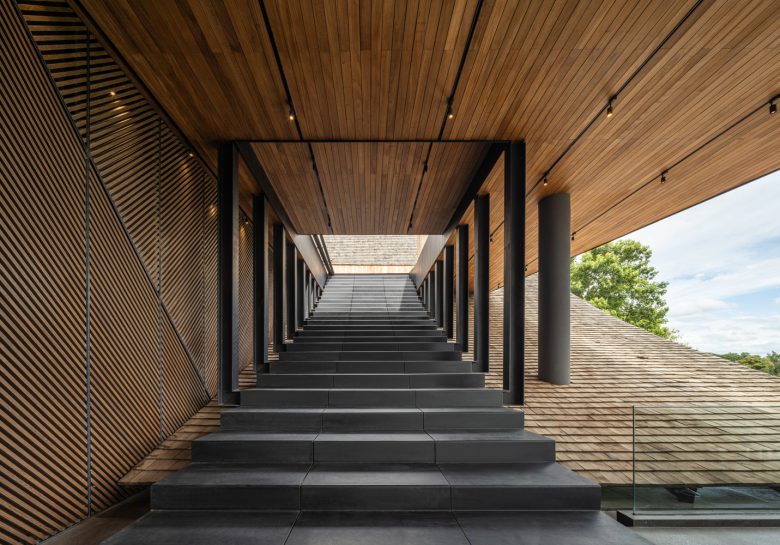
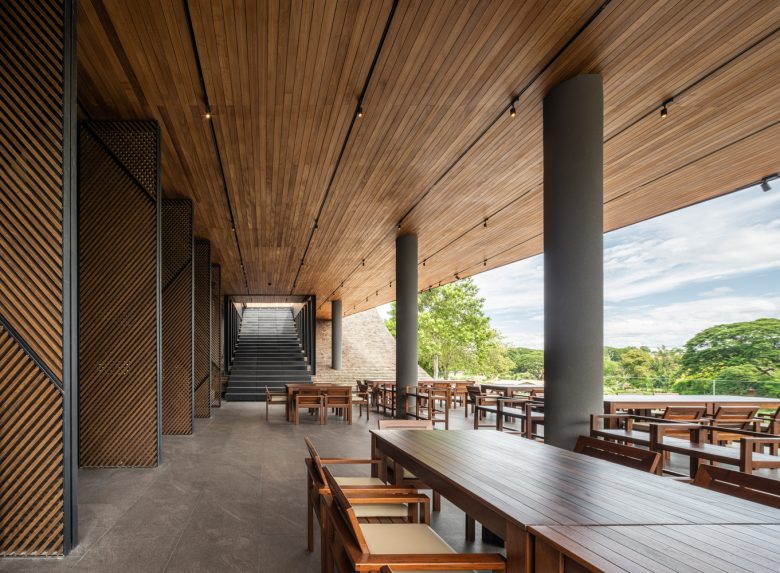
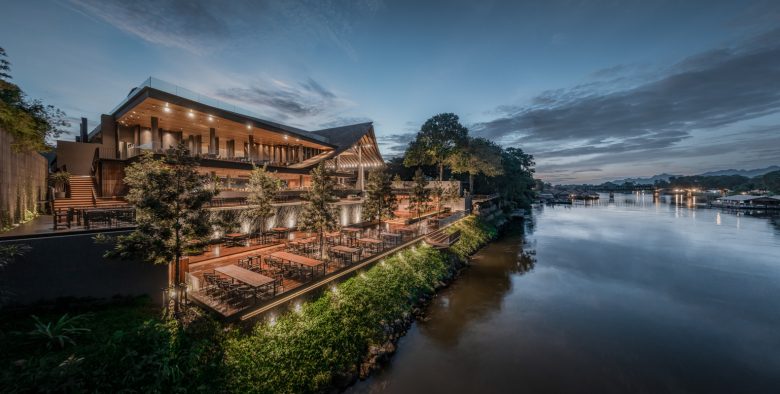
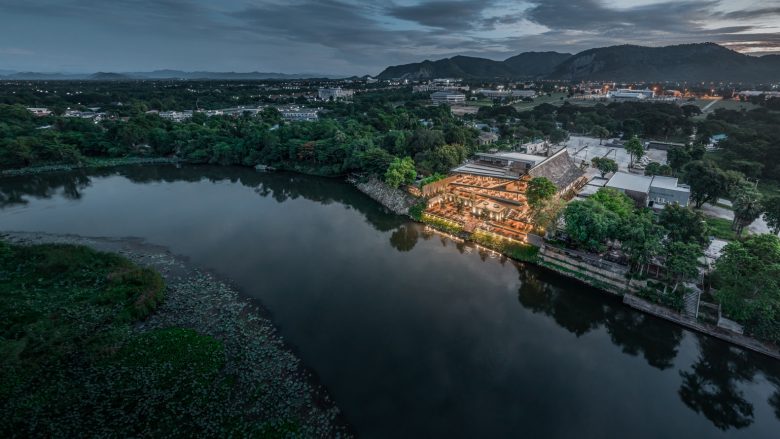
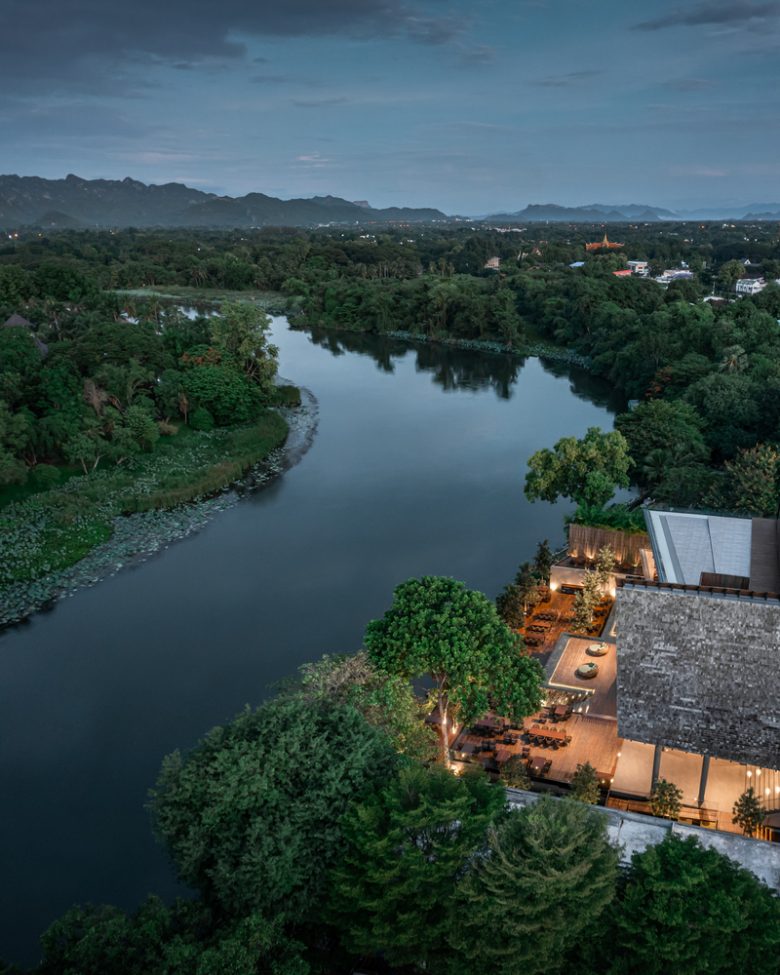
Add to collection

